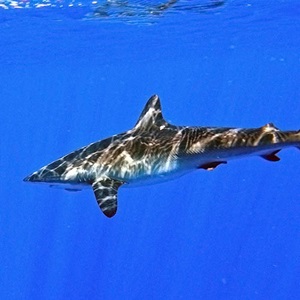This project is a continuation of a long-term study on the abundance of California market squid. Results will contribute to the sustainability of this ecologically and economically significant fishery.
- Evaluate the population dynamics of squid within the stock
- Assess if management strategies are achieving robust harvest control rules
- Monitor fishery interactions with endangered, threatened and protected (ETP) species
- Transition fishery and managers’ data collection practices to digital logs of ETP interactions
Start date: April 2025
US$62,966.99
Science and Research Fund
Awardee
California Wetfish Producers Association (WCPA)
Fishery
California market squid purse seine fishery
The challenge of managing short-lived market squid
The CWPA California market squid purse seine fishery has been certified as sustainable to the MSC Fisheries Standard since 2022. As a condition of certification, the fishery is required to improve its stock-wide harvest strategies, through accurate stock assessments. A second condition requires the fishery to improve the monitoring and recording of its interactions with endangered, threatened and protected (ETP) species
California market squid (Doryteuthis (Loligo) opalescens)
like many squid species, have a short life expectancy and are ‘semelparous’ – they only reproduce once before death. These squid usually live for six to nine months, reach sexual maturity, spawn hundreds of eggs, and die shortly after
spawning. Relative to each other, market squids’ life histories are highly variable and environmental factors such as El Niño events are known to cause dynamic fluctuations in their abundance, spatial range, and spawning patterns.
Despite their short lives, market squid are an important part of the rich and biodiverse California Current Ecosystem. The squid are consumers of smaller prey, helping to keep their numbers in check, while also serving as prey to bigger animals
such as sharks, turtles, marine mammals, seabirds, fish and other squids.
Market squid are also of huge economic importance to the region and the fishery supports a coastal community that has been harvesting since the 1860s. The CWPA
California market squid fishery has become the largest in the state in terms of both catch volume and financial worth.
As the entire California market squid stock replaces itself annually, its biomass should be able to support fishing
pressure and marine predators’ needs, but verifying this through usual methods is hard. The adult squid die before they can be accounted for, making traditional stock assessment methodologies inappropriate.
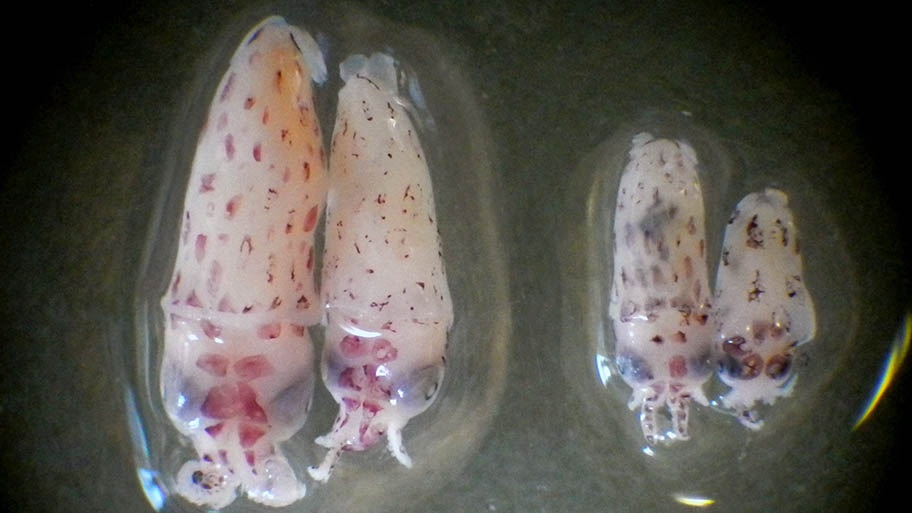
What the project will do
With the aid of a Science and Research Fund grant the Ocean Stewardship Fund, the project will continue a long-term study of California market squid hatchlings (paralarvae) conducted by fisheries managers at the California Department for Fish and Wildlife (CDFW) and the fishery itself. The study of hatchlings is known to be an effective method for assessing the stocks of these short-lived animals.The project will include three surveys, utilising fishing vessels to collect California market squid hatchlings. Data collected will further contribute to understanding of squid population dynamics. This information will be entered into models to ascertain whether current tools are effective for setting sustainable catch limits. The data will also determine if harvest control rules are appropriate to ensure the stock’s abundance and prevent overfishing.
The surveys will also help the fishery improve data collection on ETP species. To do this, CWPA is developing a system for new digital e-logs. The management at California Department for Fish and Wildlife have a vision for modern electronic fisheries data reporting and this project will improve compliance of fishery regulations and management rules by improving the reporting tools. Additionally, it will help the fishery close its condition of certification to the MSC and meet best practice levels.
“This OSF grant recognizes the importance of our research as we seek to ensure the sustainability of California’s squid fishery. The MSC's focus on sustainability shines a light on objective science and enables improvements in fisheries management.”
California Wetfish Producers Association (CWPA)
Related projects
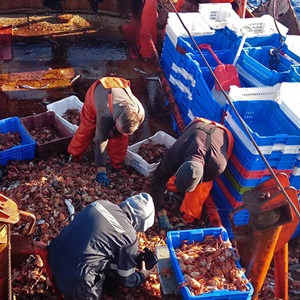
Chilean demersal crustacean fisheries: Harvest control rules
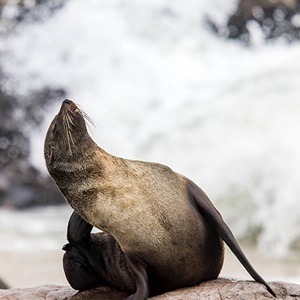
Namibia hake: Targeted Acoustic Startle Technology
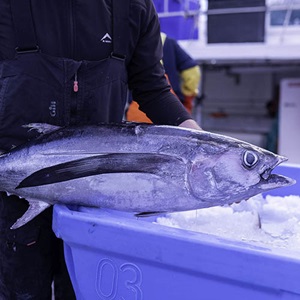
South Atlantic albacore tuna: Stock-wide harvest strategy
